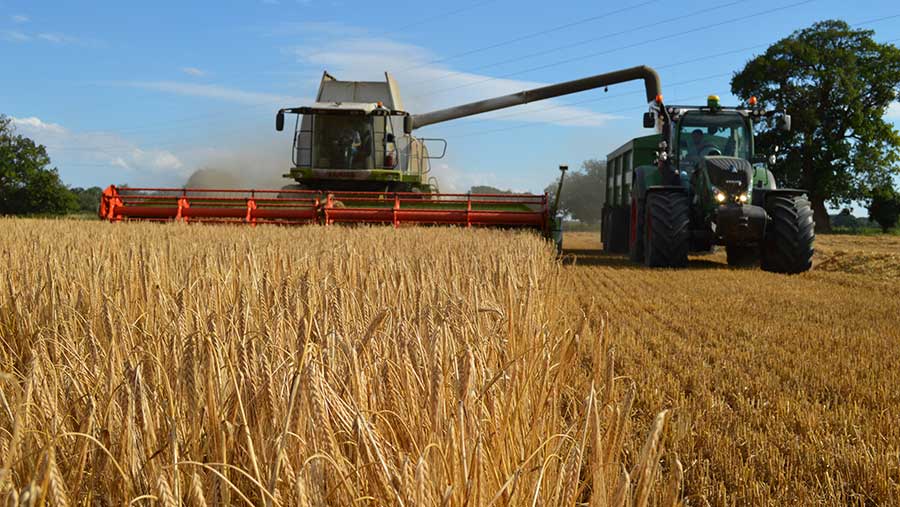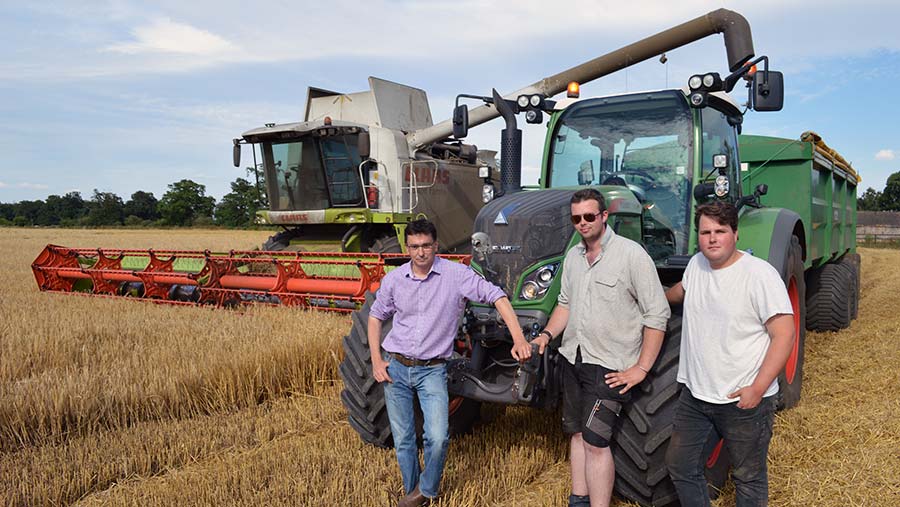Farmer Focus: Early harvest gives good entry for cover crops
 © David Jones
© David Jones I hope that by the time this goes to press we will have finished the winter barley and be well into the wheat – all by the end of July.
One particular year I can remember being this far on ended up with us not turning a wheel during August. Indeed, it was mid-September before we finished combining. Let’s hope that is not going to be the case this year.
The early cereal harvest has allowed for an excellent entry for cover crops, in addition to land following forage rye and winter barley.
See also: Read more from our Arable Farmer Focus writers
We have been able to follow early carrots with mixes including, among others, buckwheat, phacellia, mustards and fodder radish.
All this to assist in giving something back to our land before the next cash crop is planted.
This year we will be using some of these cover crops to take part in an anaerobic digestate trial, kindly organised by Agri-Tech East.
Hopefully we will be able to convert the readily available nitrogen into a green manure, capable of being effectively used through the next season, as well as assisting in building much-needed organic matter.
Of course, all of this is only worthwhile if we believe farming has a future. Even though certain issues look to challenge these thoughts at this particular period in time, we must not forget the medium to long game.

From left: Euston Estate farm manager Matthew Hawthrone, Pete Matsell and Oliver Tyrrell © David Jones/RBI
Food is undervalued
The ever-increasing population, the ability to use crops for energy and many other things certainly means we, as farmers, will be needed more than ever.
Please, no matter how difficult it gets, let us never forget that fact. Food is one of the fundamentals of life and has been undervalued for far too long.
A recent report published by the Science and Policy Unit at the University of Sussex talks of a UK food system that only has an estimated three to five days of stocks.
I would suggest this is neither secure or sustainable, especially with 40% of what we consume imported. The question is: Who is going to be the first to crack?
Will the country cave in and allow us to be driven down the cheap, potentially unreliable supply route and suffer the consequences, or can we persuade politicians to support their own reliable food suppliers with all the added benefits that we bring to the party?
Andrew Blenkiron manages the 4,400ha Euston Estate, south of Thetford. Principal farm enterprises are combinable and root crops, including sugar beet. In addition the estate supports let land, sheep, outdoor pigs, poultry, suckler cows, horses and stewardship.

